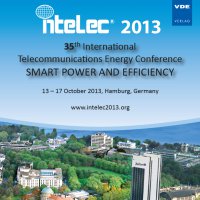ICT resilience simulations in small confined smart distribution grids
Conference: Intelec 2013 - 35th International Telecommunications Energy Conference, SMART POWER AND EFFICIENCY
10/13/2013 - 10/17/2013 at Hamburg, Deutschland
Proceedings: Intelec 2013
Pages: 6Language: englishTyp: PDF
Personal VDE Members are entitled to a 10% discount on this title
Authors:
Hartmann, Detlef (Alcatel-Lucent Deutschland AG, Berlin, Germany)
Wolter, Katinka; Krauss, Tilman (Freie Universität Berlin, Berlin, Germany)
Abstract:
There are numerous reasons why we need to reconsider our distribution concepts for electrical power. Granted, the existing energy distribution system operates quite stable, but the relentless and necessary replacement of fossil and nuclear energy sources, the volatility of the ever-growing proportion of renewable energies and the requirements for the maintenance of electricity networks push the old system to its limits. ICT can not only help to overcome these challenges, but may create an energy system that offers an entire new set of services for its users: The power grid gets intelligent - the Smart Grid is created. We encounter major challenges regarding the decentralized supply of renewable energy on the one, and new requirements on behalf of upcoming energy consumers such as Electric Mobility and Smart Metering on the other hand. Sophisticated control of the power grid needs a highly reliable ICT network. The requirements differ depending on wheth-er messages carry status or billing information or whether they trigger critical processes. Resilience of the ICT network is in addition subject to a number of influencing factors: it depends on the assumed ICT network architecture, its size and technology as well as load caused by other (background) traffic in the network. Resilience requirements also depend on the control task to be performed. Here, we envision small, geographically confined, “islands” in the power distribution grid, which operate autonomously. We want to examine the ICT behavior of a decentralized grid control in such a context. In this paper we study resilience of an ICT network for Smart Grid control by means of simulation using the discrete event network simulator ns-3. We simulate a small community with the order of a few 100 end nodes that are connected to a central control node. Traffic flows in a tree structure. We define typical Smart Grid control traffic patterns according to expected application scenarios. We assume the public Internet as network which carries other traffic as background load. Based on packet loss and delay we define resilience metrics and show their behavior as the network becomes congested.


